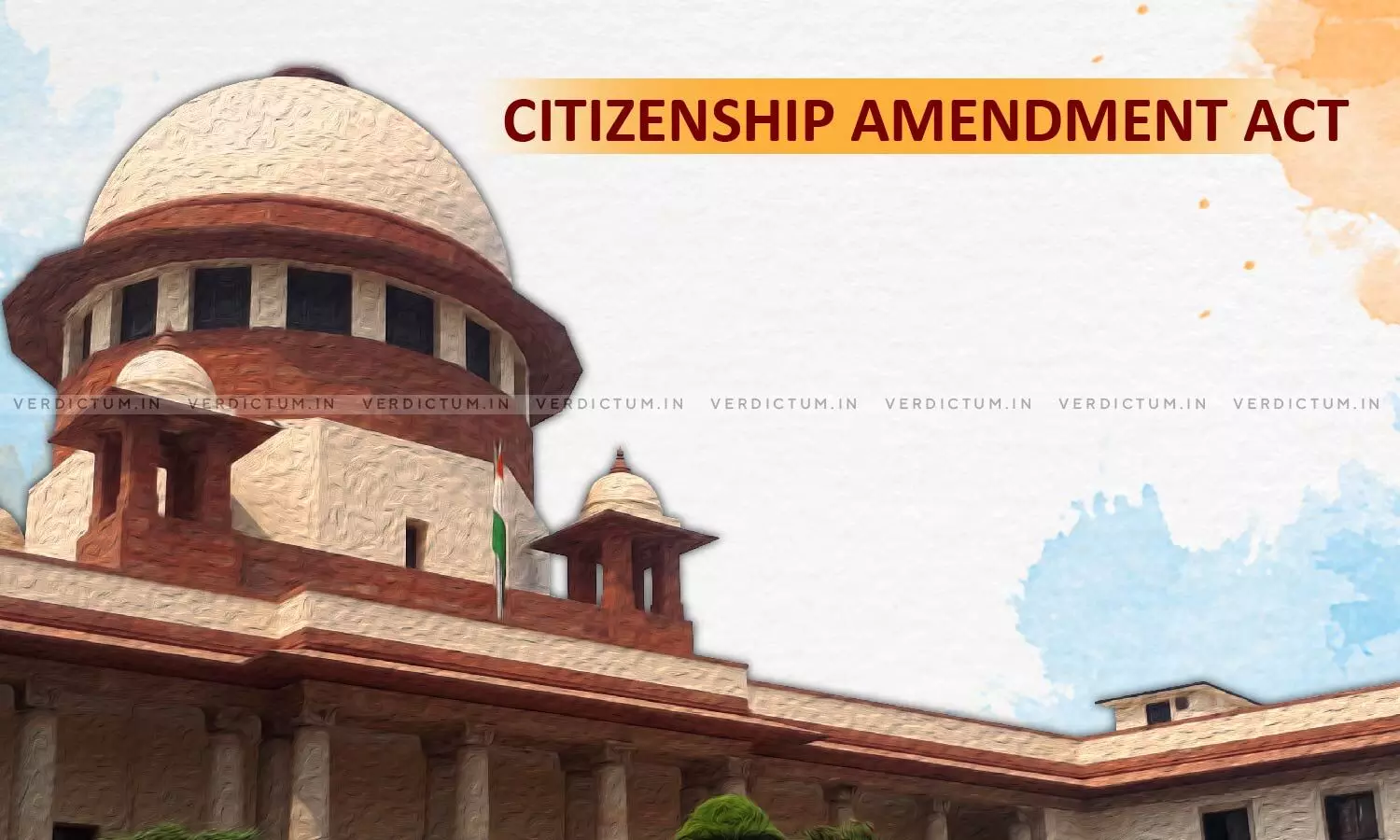
No Law Can Be Passed Which Strikes At The Root Of Secularism: Muslim League And DYFI Move SC Seeking Stay Of CAA Rules 2024
 |
|The Indian Union Muslim League (IUML) and Democratic Youth Federation of India (DYFI) have filed separate Interlocutory Applications before the Supreme Court, both challenging the Citizenship (Amendment) Rules, 2024 which were notified on March 11, 2024, by the Central Government, alleging that it is violative of Article 14 of the Constitution of India, unconstitutional, discriminatory and manifestly arbitrary.
The Applications have been filed in the Writ Petitions filed by them in the year 2019, which are pending before the Supreme Court, against the enactment of the Citizenship (Amendment) Act, 2019(CAA).
The DYFI in its Application states, “That present public interest writ petition raises a seminal important question related to the promulgation of Citizenship (Amendment), Act 2019, wherein first-time religion is introduced as a reference point/condition for acquisition of Indian Citizenship for illegal/undocumented migrants from Afghanistan, Bangladesh and Pakistan. Citizenship is being extended to certain a class of illegal/undocumented migrants belonging to the religion of Hindus, Sikhs, Buddhists, Jains, Parsis and Christians coming from Afghanistan, Bangladesh and Pakistan. Such classification on the basis of religious identity of the individual clearly violates Article 14 and 21 of the Constitution. Moreover, the classification based on the religious identity of the individual offends the fundamental principle of 'Secularism', which is enshrined as the basic structure of the Constitution".
Muslim League in its Application has stated that the CAA is manifestly arbitrary for various reasons. It stated, “Religion-based citizenship: The preamble of the constitution envisages that India is a secular country and therefore every law which is passed by the Parliament has to be religion-neutral. No law can be passed by the parliament if the basis of such a law is religion. This strikes at the root of the concept of Secularism which is the basic structure of the constitution. For this reason alone, the impugned Act is manifestly arbitrary.”
The political party stated, “The impugned notification, however, is creating a further distinction between persons of Indian origin from Afghanistan, Pakistan, Bangladesh who belong to a religious minority in these countries, and other persons of Indian origin by creating a special process for them. Notably, Muslims who are persons of Indian origin, do not get to avail the benefits of this expedited process of registration.”
The CAA was passed by the Parliament in 2019 amending the Citizenship Act, 1955. Proviso to Section 2(1)(b) states that migrants who belong to Hindu, Sikh, Buddhist, Parsi, Jain and Christian religions from Pakistan, Afghanistan and Bangladesh are eligible for citizenship by naturalization if they establish their residency in India for five years, instead of eleven years.
The implementation of the Act was temporarily extended due to nationwide protests against the Act, alleging it to be unconstitutional. In a significant development, on March 11, 2024, the Union Government notified the Citizenship (Amendment) Rules, 2024, which are in line with the 2019 CAA and provide for an online system for the applications, processing and grant of citizenship under CAA.
The Application on behalf of the Muslim League was filed by Advocate Pallavi Pratap whereas Advocate Biju P. Raman filed the plea on behalf of the DYFI.
Additionally, the Muslim League also prayed to pass an order staying the operation of Section 6B in the CAA,2019, on grant of citizenship to persons belonging to only certain religions, pending adjudication of the petitions.
Furthermore, it prayed for an order directing the Union that, in the meanwhile, members of any religion or denomination, who have been excluded on account of his / her religion(s), from the purview of the Citizenship Amendment Act, 2019 and Citizenship Amendment Rules 2024, may not be subjected to any coercive action under the respective statutes and an order not to take coercive action against persons belonging to Muslim community who have been deprived on the benefit to apply for citizenship under the Rules pending adjudication of the present Writ Petitions.
Several petitions have already been filed against the constitutional validity of the CAA and religion-based exclusions in the Act by various political leaders, groups, advocates and students since the notification of the CAA. The Supreme Court has already issued notice in the main case and sought response from the Union Government. The Writ Petitions are pending for more than four years.
In March 2020, the Government submitted their counter affidavit and stated that CAA was not affecting the citizenship of any Indian citizen and that mere under-inclusion of a category while granting benefits was not a ground to strike down a law.
Cause Title: Indian Union Muslim League and Ors. v. Union of India and Ors. and Democratic Youth Federation Of India V. Union Of India & Ors.